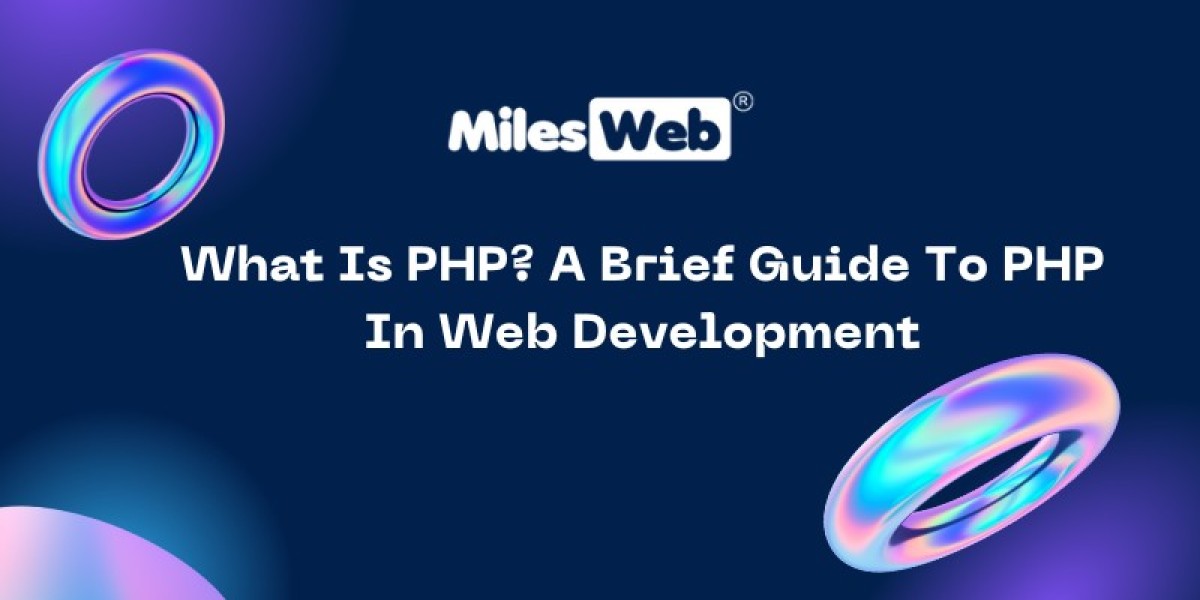Are you entering web development and curious about PHP? Every tech enthusiast has definitely heard the buzz, but are you sure what it's all about? The scripting language PHP is one of the most popular methods for creating web pages dynamically. Well, you're in the right place.
Along with learning the PHP language, PHP hosting, and different types of scripting, we will uncover all the basic details about it. This article is your easy-to-understand PHP guide.
So let’s begin!
Is PHP Programming Language Or Not?
First things first, let's clear up a common point of confusion. Whether PHP is a programming language or not? In the competition of scripting language vs. programming language, PHP comes out as a scripting language.
What's the difference? Scripting languages, like PHP, are used to automate tasks within existing software, often on the web. While on the other hand, programming languages are used to create software from scratch.
For instance, think of scripting as the helper who comes in to fix things that are small and easy, while programming is more like building a brand new house with all the complexities and technicalities.
The point to note here is that all the scripting languages are a kind of programming language, but not all the programming languages are scripting ones.
What Is PHP And How Does It Work?
What Does PHP Mean?
PHP stands for Hypertext Preprocessor, which is a server-side scripting language that web developers use to create progressive web pages. It is one of the open-source scripting languages installed in HTML. PHP originally stood for "Personal Home Page". But as it evolved, it took on the meaning "Hypertext Preprocessor", which is versatile and adaptable!
How Does PHP Work?
With the PHP language installed in HTML, it has an in-built interpretation of the scripts to add action-specific functionalities. It runs on the command line and shows the codes at the terminal. Web developers can easily assign small tasks to implement in the web pages. It has straightforward, easy-to-understand PHP language codes.
It has the simplest form of scripting that interacts with multiple databases and creates content. To date, there are several versions of PHP, and the 7th version is the most widely used and preferred one.
What Is PHP Hosting?
PHP hosting refers to web hosting services optimized for PHP. These hosting plans provide PHP support, ensuring websites and applications built with PHP run smoothly. They include features like PHP version control, databases, and PHP extensions.
The best PHP hosting feature is that it allows websites to scale as traffic and data grow.
Hosting providers offer various PHP versions, databases like MySQL or PostgreSQL, essential PHP extensions and libraries to enable various functionalities.
Is PHP Server-Side Scripting?
Yes, PHP is a server-side scripting language. In simpler terms, it runs on the web server, not on your computer. Browsers send requests to servers when you visit a website.
PHP steps in at the server side, processes that request, and sends back a dynamically generated web page. This means PHP can handle all sorts of tasks, like processing forms, interacting with databases, and creating content.
Why Should I Use PHP?
Good question! You might be wondering why PHP is still relevant when there are so many other languages and technologies out there.
PHP's staying power lies in its adaptability and ease of use. It's perfect for web development as it is continuously updated by a robust community of developers.
Whether you're building a personal blog, an e-commerce site, or a dynamic web application, PHP can handle the job. It is a popular choice due to its wide use and preference among web developers.
You can consider using PHP for the following reasons:
Easy to Learn
PHP's syntax is quite similar to other programming languages, making it relatively easy to pick up, especially for beginners.
Wide Adoption
PHP has been around since the early days of the web, so there's a vast community of developers and tons of resources available.
Versatile
PHP can be embedded within HTML, making it super versatile for web development. You can mix and match codes seamlessly, with no jargon.
Open Source
PHP is open-source, which means it's free to use and has a wealth of libraries and frameworks.
What Tools Are Used For PHP?
Since PHP is a language to develop web pages, you need to have some basic knowledge of PHP along with specific tools to use it. To work with PHP, you'll need these tools in your developer's toolbox:
Text Editor
Any code editor like Visual Studio Code, Sublime Text, or even the good old Notepad will do.
Web Server
You can install a local server like XAMPP or use a web hosting service that supports PHP.
Database
If your project involves databases, PHP can connect to a variety of databases like MySQL, PostgreSQL, and more.
Frameworks
PHP has some popular frameworks like Laravel and Symfony that can help streamline your development process.
How Does WordPress Use PHP?
If you've ever wondered about blogging or website building, you've probably heard of it. WordPress relies heavily on PHP. In fact, it's written in PHP. WordPress uses PHP to dynamically generate web pages, manage content, and handle user interactions. With these actions, WordPress easily navigates around.
Does WordPress Require PHP Knowledge?
Now, here's the million-dollar question: Do you need to be a PHP expert to use WordPress? Not necessarily. WordPress comes with a user-friendly interface, simply allowing users to build and manage websites without being experts in PHP. However, having some basic PHP knowledge can be incredibly handy when it comes to customizing and troubleshooting WordPress sites.
PHP: Is It A Coding Language?
Yes, PHP is a coding language, even though it is a scripting language. Coding is all about the process of instructing a computer to perform specific tasks. While PHP does the same (instructing the computer to perform tasks), it uses another simplified way. PHP runs scripts that automate actions on the web server. These automated actions then generate web pages for users. So, you could say PHP is a coding language with web-focused scripts.
The Last Words
PHP is the engine behind dynamic web pages. We've learned that PHP is versatile, easy to learn, and widely adopted, making it an excellent choice for both beginners and experienced developers. It's not just a coding language; it's a scripting language with a web focus that excels at automating tasks on the web server.
So, whether you're crafting a personal blog or building a complex e-commerce platform, PHP has adaptability, integration with HTML, and database-handling capabilities that make it a valuable tool for web development. So, the best suggestion is to familiarize yourself with PHP. It might just become your go-to tool for web experiences. Happy coding!








